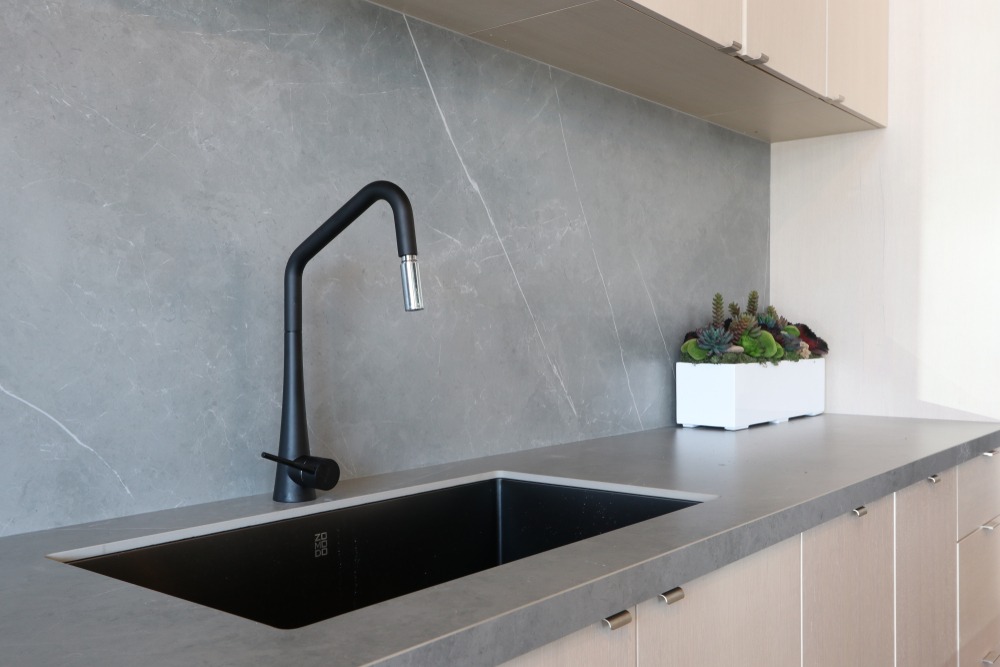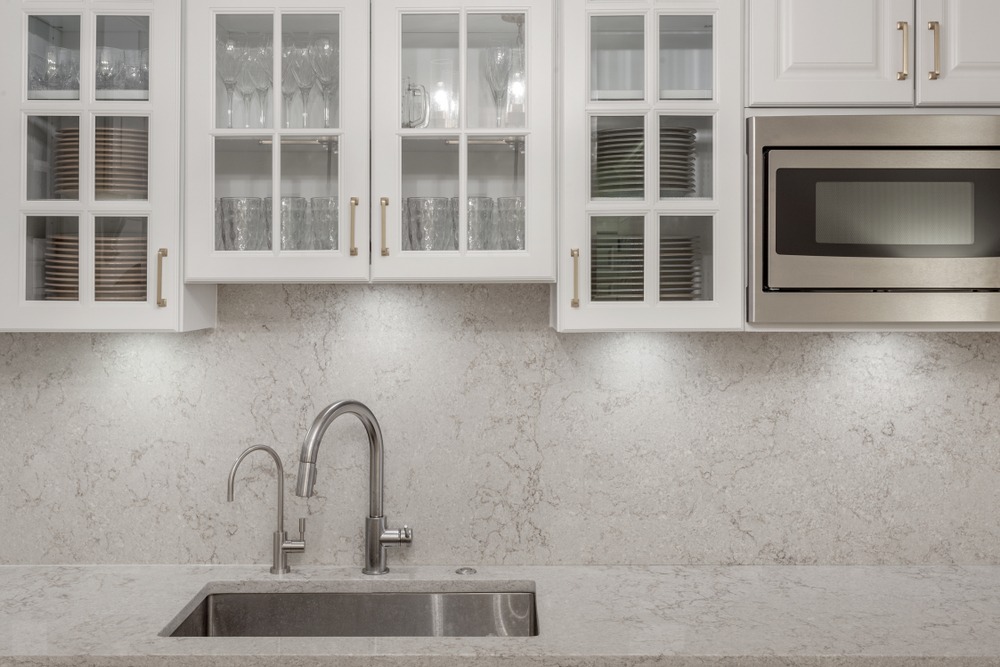When searching for a backsplash that will work as a charming highlight in your kitchen, it’s not unreasonable to feel slightly overwhelmed.
Since it is a significant expense, it’s understandable why homeowners feel confused. Fortunately, one cannot underestimate the beauty of a natural stone backsplash.
An upgraded kitchen with beautiful elements will increase your residential property’s value, and there’s nothing that can offer an excellent return on investment than a high-quality natural stone.
The universal and neutral appeal offered by a natural stone backsplash is here to stay.
In fact, you can easily find natural stones in unique styles for almost all aspects of your kitchen, including the following types of kitchen countertops and designs.
However, with so many natural stone options available on the market, you may get confused when selecting backsplash material.
This post will discuss everything about natural stone backsplashes, so read till the end.
Stone Backsplash for Kitchen Spaces: Basic Things Homeowners Should Always Consider
1. Stone Options
Several types of stones can be used to create splendid-looking backsplashes, but the four most popular options include quartz, soapstone, marble, and granite.
The appearance of stone should not be the only reason to choose a material.
It’s essential to consider the most extraordinary benefits of every material:
- Quartz: This stone is incredibly strong and offers various benefits, such as stain resistance, crack, and chip resistance. Quartz is non-porous, which means you can clean it easily. Engineered quartz that uses more than 90% natural stone is the most preferred backsplash material for several homeowners throughout the country.
- Soapstone: Soapstone is another preferred backsplash material that is mostly available in dark greens and gray tones. It is scratch-resistant, so it will give practically any cooking space a stunning appeal for years to come.
- Marble: This material offers a high level of heat resistance; hence it is preferred for kitchen counters and backsplashes, especially in high-temperature areas. However, it is more porous than other materials like engineered quartz, so it needs a special sealant.
- Granite: It is another great backsplash material, especially if you are looking for something to complement your natural stone counters. The porosity level of granite is not as high as marble and other stones, so it is simple to clean and maintain.
2. Tile Vs. Slab
Tile and slab are the two primary styles for a residential natural stone backsplash. As the name suggests, a slab backsplash uses large slabs of natural stone, which are installed in a seamless manner.
On the other hand, tiles are created by cutting large slabs into smaller pieces in various dimensions and shapes. Then, high-quality mortar or an alternative adhesive is used to affix the tiles.
Keep in mind that the installation of stone slab backsplash is quicker than the tiles. Additionally, they provide a seamless design because there are fewer joints/seams.
Their arrangement prevents dirt and debris from accumulating, which is a great advantage in busy kitchens.
But when it comes to the tile backsplash, there are numerous design options to choose from. You can install all tiles in the same shape and dimensions or experiment with different shapes, designs, and colors to create a unique backsplash.
3. Stone Finish
Merely selecting the stone doesn’t make your job complete as you have to pick a stone finish too. Natural stones are available in various finishes, such as polished, honed, and brushed.
If you want to have a smooth and silky kitchen backsplash, then a polished stone finish is the right choice.
Also, it is simple and easy to clean. Diamond discs and other similar equipment are used to achieve a high-gloss, polished look.
The honed finish is another option, especially for stones that tend to scratch. The honed finish gives a slight texture to the stone, which helps hide the abrasions and scratches.
However, it can be a bit tricky to clean due to the presence of texture.
Brush finish is one more common option for stone backsplashes. It helps give a unique antique appearance to the stone. It also hides stains and scratches.
Pros of a Natural Stone Backsplash for Kitchen Spaces

Cost-Effective
Initially, installing natural stone might seem like an extreme expense for some homeowners, but it helps save a significant amount of money in the long run.
Natural stones are durable and can last for several years. With regular cleaning and proper maintenance, you can improve their durability and overall lifespan.
Increase Property Value
One of the major benefits of natural stones is that they can increase the value of your property. No matter which stone you select, the value of your home will go up immediately.
Uniqueness
Design variation is the key property of the natural stone. No two pieces of stone will look exactly the same. All the swirls, texture, and veins will belong only to your home.
Cons of Natural Stone Backsplash for Kitchen

Naturally Porous
Most natural stones are porous, which means liquid and moisture can penetrate through the surface, creating a home for bacteria and mold.
Therefore, it is suggested to reseal natural stones regularly. Homeowners that want a non-porous material can opt for engineered quartz countertops.
Prone to Scratches
Some natural stones are quite soft on the surface level, so they are highly prone to cracks and chips. Extra caution and regular resealing will be required with such backsplashes.
Alternatives like engineered quartz can be the best option if you want a scratch-resistant material.
Hard to Restore
Repairing a backsplash with natural stone is more difficult than an engineered one. And in some cases, the restoration is beyond the bounds of possibility.
Heavyweight
Natural stones come with excessive weight and may require structural reinforcement prior to the backsplash installation.
Is a Natural Stone Backsplash Right for Your Kitchen?
Natural stone is ideal for fabricating your kitchen’s wall with timeless beauty.
However, these require extra care and maintenance, so the final decision depends completely on your personal preference.
If you are ready to spend some time on cleaning and maintenance, you can opt for natural backsplashes.
But if you want something that’s easier to clean, engineered stones like quartz will also be a perfect choice.



Comments are closed.